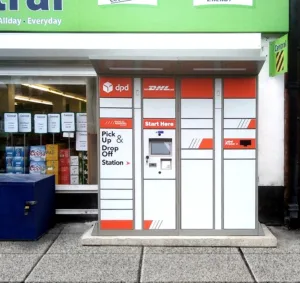By Liam Chennells, Chief Executive Officer, Detected
What a year to found a business in.
I’ve always known that ecommerce never sleeps, but even after all this time in such a diverse sector, the past twelve months have felt like none before.
In light of this and ahead of the industry losing itself to Peak 2021, now’s the ideal time to share what we have observed and learned while working with online marketplaces.
From ship from store initiatives to ride out lockdowns to the explosive growth of niche marketplaces to capitalise on changing buyer behaviour, there have been systematic changes wherever you look in online retail.
Here are three trends we have observed and how they affect marketplaces.
1) Mobile ecommerce keeps growing
In 2021, mobile ecommerce will account for more than 70% of total shopping.
That percentage shouldn’t surprise many, especially those selling direct-to-consumer (D2C), but what is surprising however is just how many online marketplaces overlook this data.
In our conversations with marketplaces across the world, it’s clear that many still see their platforms as desktop retail environments. This is particularly evident within the B2B sector where marketplace operators presume that business buyers only purchase on a PC or laptop.
Marketplaces must provide mobile-friendly experiences to all parties. For buyers, this means an uncompromising user experience with responsive design and easy checkout. For sellers, it’s a quick onboarding process that works flawlessly on mobile and the ability to manage their products wherever they are.
It’s incomprehensible that mobile is still considered an afterthought by some within this sector. The iPhone has been around for 14 years. Mobile is going nowhere.
2) Policing ecommerce is becoming a serious business
Marketplace scams, dishonest sellers, fake listings and reviews, dodgy seller data – all of these have risen in prominence during the pandemic and as competition continues to intensify across the sector these issues will continue to rear their ugly heads again and again.
For example, over the last year, Citizens Advice in the UK has seen a 160% rise in online marketplace scams. That’s just one example.
Marketplaces and those who provide customer validation are waking up to these concerns.
Trustpilot is investing in AI-powered data analysis. Amazon chucked out a load of Chinese sellers last year. The UK Competition and Markets Authority (the CMA) is getting heavier with its investigations.
Tax authorities across the world are also demanding marketplaces take greater responsibility for who sells on their platforms, and their tax and financial obligations on a global scale.
eCommerce is growing up. Complexity is no longer an excuse.
3) Accurate seller data’s no longer a nice to have
How can you grow your marketplace if you don’t know who’s selling on your platform?
Mirroring finance’s rapid adoption of Know Your Customer (KYC) and Know Your Business (KYB) technologies, online marketplaces are next on the list for these types of solutions.
Progressive marketplaces, especially those founded in the GDPR era have already recognised the strategic value of comprehensive global seller data, however verifying a seller’s name, location and basic financial information is no longer cutting-edge.
That data should be considered fundamental, as should other critical business insight and credentials.
Marketplaces scrambling to become audit-ready is another trend we have observed. The OECD Model Reporting Rules as well as AML5 and PSD2 developments have made compliance a critical priority.
Whether a marketplace chooses to enhance its seller data due to external pressures or because it treats great data as a means of building consumer confidence and increasing trust, the days of basic business insight are coming to a close.









